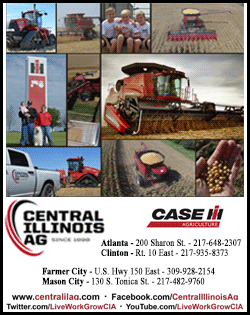|
 Surveys illustrate the divide and incongrous conflict over the
issue. For example, in a 2013 national 'Climate Change in the
American Mind' poll the public perception, especially as it relates
to global warming, found "1 in 4 Americans think that global warming
is not happening, and half say they are "worried" about it." Surveys illustrate the divide and incongrous conflict over the
issue. For example, in a 2013 national 'Climate Change in the
American Mind' poll the public perception, especially as it relates
to global warming, found "1 in 4 Americans think that global warming
is not happening, and half say they are "worried" about it."
A 2015 survey by the Yale Project on Climate Change Communications
indicated, "63% of Americans believe global warming is happening,
and 48% believe that human activity is primarily responsible."
An Intergovernmental Panel on Climate Change's 2014 synthesis report
said, "Human influence on the climate systems is clear." And that,
"Recent climate changes have had widespread impacts on human and
natural systems."
Due to the controversial nature of the topic, public schools are not
required to teach climate change, and those who do present the
evidence to children, allow them to investigate and make their own
decision about the issue
 Devin Biggs, a meteorology student at Western Illinois University,
said that what he has learned is the weather cycles in patterns that
bring both warm and cool cycles. He say they are not being taught
about climate change. Bigg said, "I don't think climate change as
they define it is real, but I do believe we see these cycles. El
Niño (that we're in now) and La Niña are big influences of that
pattern."
Chris Miller, who works in Lincoln for the National Meteorology
Service says, "NOAA's perspective on climate change is that we are
seeing signs of a changing climate in some parts of the world,
particularly at the poles and in the higher latitudes. The potential
impacts of this are still being studied." He says, "The influence of
human activity has played a role. However, it is important to
remember that our atmosphere is highly complex, so other factors
need to be analyzed."
According to a Scientific American article "U.S. Farmers View
Climate Change as Just Another Weather Challenge," farmers have
become accustomed to bad weather that includes both drought and
torrential rains, and many "don't think humanity is to blame for the
long-term shifts in weather patterns known as climate change." They
are likely to view climate change as something that has always
occurred as a part of natural weather patterns
No matter what the cause is, the general consensus among many
scientific societies is that the planet has become warmer in the
past century.
Miller says, "Data from the past century points to significant
warming at the high latitudes of the Arctic, North America, Asia and
Europe. However, we have seen very little warming in the Midwestern
and Southern U.S. over the past century," though he does note that
"in the Midwest we have experienced slightly warmer temperatures
from late Winter through the Spring during the past 100 years."
Miller says that when we just analyze a century of data, "there are
a lot of assumptions being made."
 For people who believe humans influence climate change, agriculture
is seen as one cause of the increase in greenhouse gases with "CO2
emissions linked to deforestation in temperate regions: where
forests and woodlands are cleared to make room for fields and
pastures, . . [m]ethane emissions from rice cultivations and enteric
fermentation in cattle. . . and [n]itrous oxide emissions from
fertilizer applications" according to the Climate Institute.
According to Monsanto, agriculture is one of the first areas to be
affected by changes in our environment. Rising temperatures, extreme
weather, and drought are just a few of the issues agriculture must
deal with in order to feed mankind. The company asserts, "Some
effects of agriculture—such as the greenhouse gases produced by farm
machinery and the production of fertilizer—are contributing factors.
And of course, agriculture itself can suffer from the effects of
climate change." Other thoughts are that "Agriculture needs to adapt
to changing conditions and use farming techniques that reduce the
impact of our changing climate."
[to top of second column] |

Studies by the University of Illinois College of Agriculture,
Consumer, and Environmental Sciences indicate that climate change
may adversely affect farming, such as a fungus that causes charcoal
rot. ACES Molecular biologist Osman Radwan postulates, "As the
climate continues to change and we see more extremes in the weather,
including hotter, drier summers, this fungus will have more
favorable conditions to gain a foothold in soybean and other crops."
Other possible impacts, both positive and negative, have been noted
by the Climate Institute. They state that "climate change could
result in a variety of impacts on agriculture," with possible
effects including:
-
A shift in climate and agricultural zones
towards the poles.
-
Changes in production patterns due to higher
temperatures.
-
A boost in agricultural productivity due to
increased carbon dioxide in the atmosphere.
-
Changing precipitation patterns.
-
Increased vulnerability of the landless and the
poor.
Food production and crop yields could also be adversely affected by
climate changes such as droughts or heavy rainfall. A report by the
Food and Agriculture Organization of the United Nations explains
that, "Under the IPCC emissions scenarios, higher temperatures are
projected to affect all aspects of the hydrological cycle. More
frequent and severe droughts and floods are already apparent, and
their impact increases as a growing population becomes more
dependent upon a set of atmospheric andhydrological circulations."
The FAOUN further believes that, "Climate change will impact the
extent and productivity of both irrigated and rainfed agriculture
across the globe."

As Chris Miller said, "Weather is highly variable and very local.
Just because we are not experiencing major impacts of a changing
climate, does not mean it is not impacting other parts of the
world." He also says, "it is prudent to at least plan for 'worst
case' scenarios. It doesn't mean they will absolutely occur, it just
means that we can be prepared for a potentially uncertain future.
Finally, we ALL benefit from being "stewards" of our planet by
improving the air we breathe, the fresh water we need to survive,
and the soils to grow our food."
[Angela Reiners]
See more at:
http://environment.yale.edu/climate-communication/article/Climate-Beliefs-November-2013/#sthash.0jfKmXd8.dpuf
http://environment.yale.edu/poe/v2014/
|